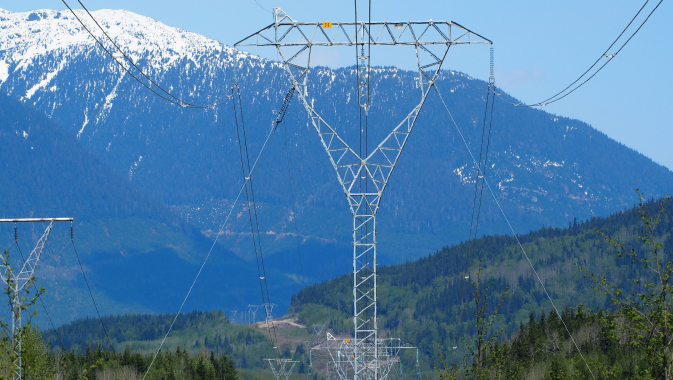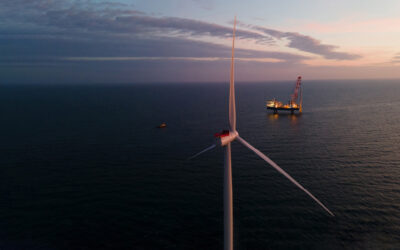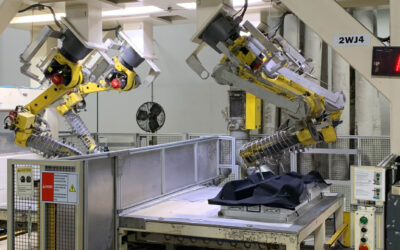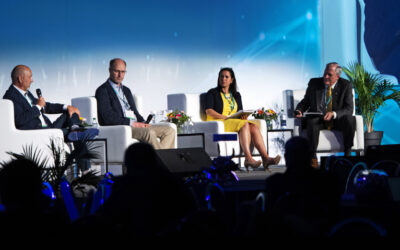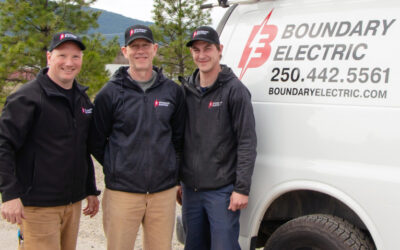Domino Highvoltage Supply is a Canadian-owned power-line distributor that has provided power-related products and services since 2005. Beginning last year, Domino has implemented massive changes in its infrastructure and a bunch of exciting new projects.
The Fort McMurray project undertaken by the company in 2019 (see the May 2019 issue of Business in Focus) has reached 100 percent completion and the newly-built transmission lines are fully energized; now, Domino is in the first half of its next major project called the Ontario East-West Tie Line, which is set to run from Thunder Bay, Ontario along the lake toward Wawa.
This is a billion-dollar-plus project for former parent company Quanta Services and partner Valard Construction, with Domino supplying all necessary materials on the job (akin to its role in the Fort McMurray project). The company is also involved heavily in bidding on its next major project, “Watay,” which is another billion-dollar project for Quanta and Valard.
Domino purchased ‘All Power Products’, a tool distributor for power line businesses in Edmonton, Alberta last year as well. This move was a continuation of the company’s diversification into the high voltage testing market, as it has begun providing gloves, blankets, tools, and safety material for linemen, as well as a one of a kind tool and specialized equipment rentals.
Grant Lockhart, president of Domino, sees this as a “good normalizer for cash flow throughout the year” and the diversification has been a big boost to business due to a sizable need for these products and services in Canada. The company has invested well over a million dollars into its own equipment to keep up with clients’ requirements and keep turn-around times as low as possible.
Now privately held
Lockhart proudly reveals that Locsaun Investments Inc. & Locsaun America LLC has acquired the entire Domino group of companies from Quanta Services Financial Inc., the parent company, at the end of January 2020, after the former president of Quanta Canada stepped down.
Lockhart affirms that “it was a great experience and opportunity being a part of Quanta,” as it allowed Domino’s business to grow across North America and globally as well.
Domino is now a privately held Canadian-owned company with a head office in downtown Vancouver, a new operations centre in Edmonton (along with All Power Products and a test lab), an office and test lab in Ontario, and a new spot upcoming in Halifax, Nova Scotia. The Halifax location will be an opportunity to take advantage of the pro-business eastern Canadian market, ensuring the company is “literally coast-to-coast.”
Domino has also seen expansion in its American territories from Washington into the California area along with further moves in Puerto Rico and Europe.
Over the past couple of years, Domino has also opened and commissioned two high-voltage dielectric testing facilities: One dielectric testing lab has been opened next to the Mississauga, Ontario office and has been operating for over a year, with an identical lab opened in the company’s Edmonton operational centre.
Leading in innovation
“We’re the leaders in an industry that is itself evolving and is still quite young,” Lockhart underlines.
Along with its recent growth, the company continues to innovate in its approach to the power line sector. Domino is the owner of a company called FRP Transmissions Innovations Inc. (or simply T.I.), an outfit founded about a decade ago to introduce new technologies into the power line industry.
Lockhart explains that utilities in the industry use wood (both creosote and penta-soaked) dug into the ground, which unfortunately allows these chemicals to go back into natural sources like earth and even ground water. Utilities across North America use this treatment as well as galvanized steel (also not environmentally friendly).
When BC Hydro/BCTC contacted Lockhart for a product that satisfied the provincial and federal Environmental Clean Energy Acts and could be an alternative to wood and steel, Domino and T.I., along with BC Hydro/BCTC, developed a cross-arm C-channel product that replaces the cross-arm on a transmission or distribution structure, and which has now become a flagship product.
The company also now boasts composite poles, smaller cross-arms, braces, and major transmission arms which are generally environmentally friendly and don’t leech into adjacent areas, so they can be utilized in more environmentally sensitive areas.
Lockhart calls this a big win for places like California which are vulnerable to wildfire, as the company’s products are self-extinguishing and have an elastic memory to reduce catastrophic failure. The products are 100 percent dielectrically safe, lighter, UV-resistant, and with a lifespan extending for an as-yet unquantifiable time (estimated to be at least 75 years).
Raising the materials bar
Besides ensuring safety and environmental sustainability, there’s a drive amongst the entire workforce at Domino to ensure that clients never run into construction delays for reasons related to materials, and this spurs the company into constant innovations in its operations.
Domino introduced its ‘global quality program’ around five years ago, an initiative to clearly establish both the origin and the crucial relative quality of its global manufacturers’ materials. Lockhart is firm that Domino wants “100 percent accountability on every piece and part being made for us,” so that upon arrival on the job site, the quality of those parts can be vouched for.
The program has generated sizable savings for Domino clients and has contributed to the company providing consistently effective and reliable products, justifiably backed with great confidence.
Domino has also begun to use the contractor tool ComplyWorks, a system that ensures that every sub-contractor on a job conforms to the requirements of the general contractor. Lockhart says that Domino was able to (with the ComplyWorks team) reverse-engineer the tool to create a list of requirements for the company’s supplier-manufacturers to ensure accountability – and a suitably high level of quality – so that Domino could vouch for them in turn.
A consistent challenge for Domino now is getting out information on the services it provides both in North America and around the world.
Face to face
The power-line industry is one that Lockhart describes as “young but old,” with power line contractors being both very busy due to high client demand and not necessarily savvy about online communication. There is no single medium that everyone sees, and a difficulty in advertising through modern – read ‘online’ and ‘social media’ – channels, leading to the necessity of talking to these clients in person.
These in-person communications often require many interactions for the company to get to grips with the full scope of a potential client’s business. Domino’s answer to the challenge is farsighted – promoting promising people within Domino across the country to upper management and executive positions. This way, the company frees up Lockhart and Domino COO Jesse Saunders to engage with clients and promote services at high levels across a larger audience.
Pushing quality
Today, the Domino team is pushing hard into the quality side of the product they’re manufacturing and delivering. Lockhart says that there are so many global manufacturers now, and so much outsourcing from local manufacturing, that it can mean a loss of quality during this “price race to the bottom.” The result is that if a company in the industry doesn’t have a distributor it can rely on, clients may end up with a product that doesn’t meet their requirements.
Domino has always been predominantly a private sector company, with the public sector being the focus of its competitors. However, Lockhart mentions that Domino’s two primary competitors have come together recently (one purchasing the other), so the company will be focusing on more of the public market space thanks to its large private sector contract success and its physical locations around North America. Procurement and distribution will also be a continued focus, with the distributor business taking a deep dive into major suppliers, key partners, the overall product line, and where the holes and overlaps might be, remedying these if necessary to streamline procurement.
Domino will also continue to invest in its proprietary global inventory-management system, described by Lockhart as the “backbone of operations and success [in] all divisions.” Thanks to the hiring of a new Director of IT, Domino can step up on a global scale to keep the focus on customer service, visibility, and ease.
The Amazon of power lines
As far as the system is concerned, Lockhart wants Domino to be like “Amazon in the power line market space globally.” Over 15 years of growth and development, Lockhart and Domino have learned that “if you stop growing and stop learning, you’re done.”
Considering the growth experienced by the company in the last year alone and the valuable lessons learned across a decade and a half, the only “done” thing about Domino Highvoltage Supply is that it will be serving the power line industry better than ever.

